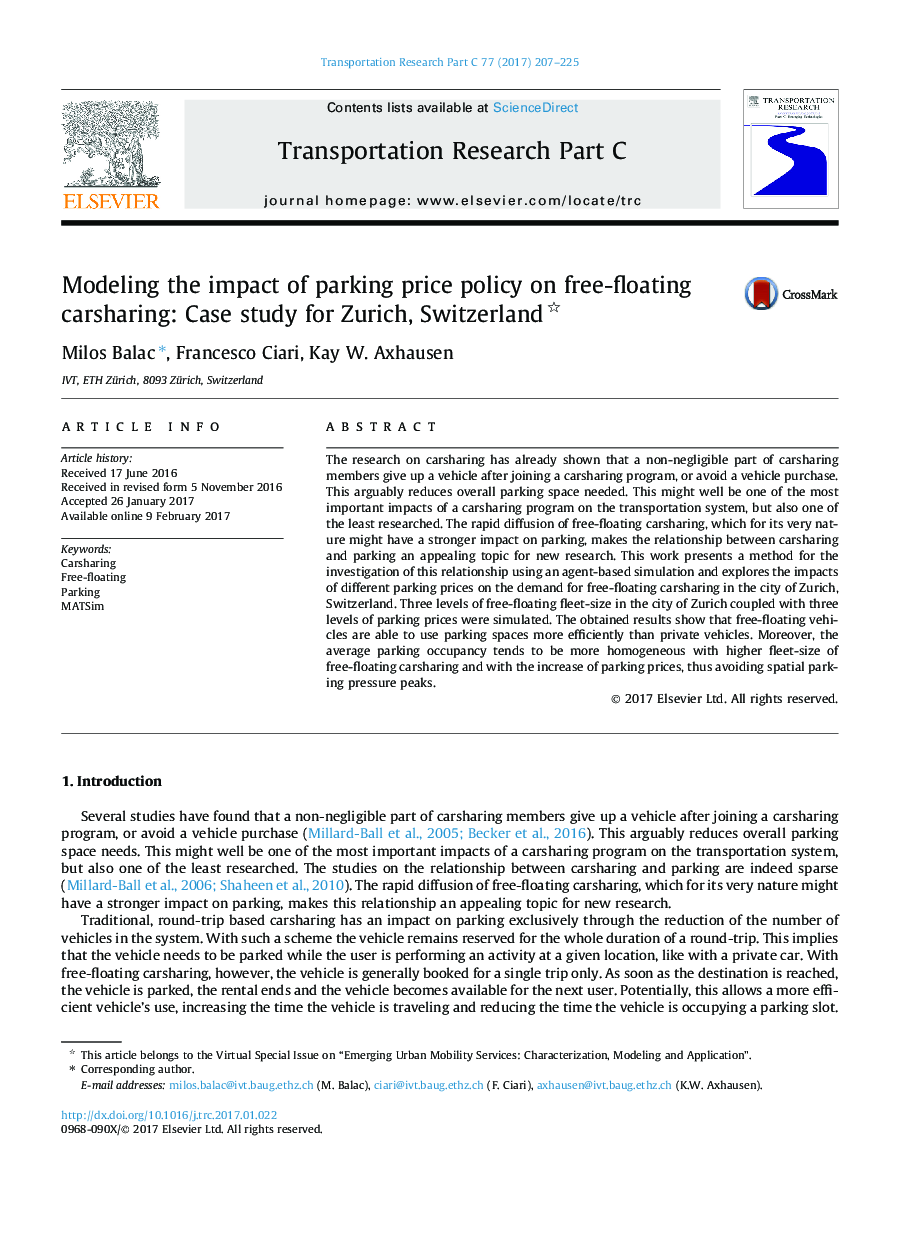| Article ID | Journal | Published Year | Pages | File Type |
|---|---|---|---|---|
| 4968627 | Transportation Research Part C: Emerging Technologies | 2017 | 19 Pages |
Abstract
The research on carsharing has already shown that a non-negligible part of carsharing members give up a vehicle after joining a carsharing program, or avoid a vehicle purchase. This arguably reduces overall parking space needed. This might well be one of the most important impacts of a carsharing program on the transportation system, but also one of the least researched. The rapid diffusion of free-floating carsharing, which for its very nature might have a stronger impact on parking, makes the relationship between carsharing and parking an appealing topic for new research. This work presents a method for the investigation of this relationship using an agent-based simulation and explores the impacts of different parking prices on the demand for free-floating carsharing in the city of Zurich, Switzerland. Three levels of free-floating fleet-size in the city of Zurich coupled with three levels of parking prices were simulated. The obtained results show that free-floating vehicles are able to use parking spaces more efficiently than private vehicles. Moreover, the average parking occupancy tends to be more homogeneous with higher fleet-size of free-floating carsharing and with the increase of parking prices, thus avoiding spatial parking pressure peaks.
Keywords
Related Topics
Physical Sciences and Engineering
Computer Science
Computer Science Applications
Authors
Milos Balac, Francesco Ciari, Kay W. Axhausen,
